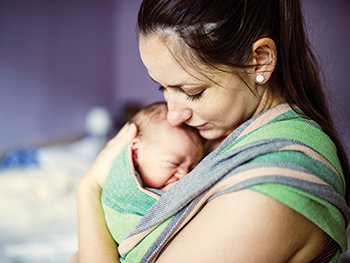
Breastfeeding is important for children, parents, families, and communities.
- Human milk is the first traditional food and nourishes children with essential nutrients and other factors tailored to their unique needs
- Feeding at the breast helps keep children’s and parents’ immune systems strong
- It helps build a strong emotional bond/attachment between children and their parents
- Breastfeeding reduces health care costs for families and society
Learn more about why breastfeeding is important: 10 great reasons to breastfeed your baby – Public Health Agency of Canada (PHAC).
Additional information
Northern Health supports the following recommendations:
- Within the first hour after birth, hold babies skin-to-skin and support them to start breastfeeding. If baby is too tired to nurse, by about a half hour after birth, hand express colostrum onto a spoon and feed these drops to baby
- Feed newborns often, eight or more times in 24 hours. This includes at least 2-3 feeds at nighttime. Respond to baby's early signs of hunger. Learn more about breastfeeding my baby (PDF) - Perinatal Services BC
- For about the first six months of life, give babies only human milk. They do not need other foods or drinks (not even water) unless there is a medical reason
- Give a liquid vitamin D supplement to all babies and children who receive human milk. Learn more: Vitamin D for breastfed infants and toddlers in Northern BC (PDF) – Northern Health
- Introduce solid foods at about six months of age, when babies show that they are ready. Learn more: Before you feed your baby solid foods (PDF) – Northern Health
- Continue to breastfeed children for up to two years and beyond, for as long as families wish
Northern Health recognizes that many things affect families’ infant feeding decisions. To make informed decisions about infant feeding, families should have access to unbiased information about the risks of not breastfeeding. These include the:
- Health impacts for child and parent
- Financial cost for family
- Safety of infant formula
- Difficulty to reverse decision once breastfeeding is stopped
- Risk of formula supply issues
Learn more about the risks of not breastfeeding (PDF) – Breastfeeding Matters, Best Start by Health Nexus
For families feeding with infant formula, please see Nutrition in the first year NH public webpage for more information.
Northern Health recognizes that many factors influence infant feeding decisions. We want all families to:
- Have the information they need to make feeding decisions
- Feel that their decisions are respected
- Receive support to reach their infant feeding goals
We are putting steps into place to ensure that all families feel safe and confident feeding their babies. These steps are based on the Baby-Friendly Initiative, and are captured in our baby-friendly pledge to families:
- Baby-friendly policy: We protect, promote, and support breastfeeding* as the optimal way to feed babies. We also respect the feeding decisions of all families.
- Staff education: Our staff is gaining knowledge and skills to support breastfeeding and other infant feeding methods.
- Make a plan: During pregnancy, we can offer families information to help with decision making and planning for infant feeding.
- Skin-to-skin: Regardless of feeding method, we support families to hold their babies skin-to-skin, immediately after birth and ongoing. This is important for all babies.
- Learn to breastfeed: We help families learn how to breastfeed, and to feel confident feeding their babies, even during times when they are apart.
- Breast milk for breastfed babies: When the goal is to breastfeed, we will help to give only breast milk, unless there are medical reasons for using formula. We will help families who use formula to do so safely.
- Being together supports feeding: We will support parents to stay together with their babies, unless there is a medical reason for separation.
- Responsive, cue-based feeding: We support families to feed their babies as often and for as long as they need, based on signs of hunger and fullness.
- Bottles or soothers: We can support decision making about bottles and soothers, and caring for breastfed babies without these devices.
- Community support: We can provide families with information about community supports that can help with infant feeding once they return home.
*While we may use the term “breastfeeding”, some people may prefer to use nursing, chestfeeding, or human milk feeding.
Featured resources
- Breastfeeding – HealthLink BC
- Breastfeeding wellness teachings for mothers, families and communities (PDF) – First Nations Health Authority (FNHA)
- Breastfeeding your baby (PDF) – Baby’s Best Chance, Provincial Health Services Authority (PHSA)
Featured NH Stories
- Breastfeeding: A cultural approach can make all the difference
- Breastfeeding champion Jeanne Hagreen retires after decades of service
- Celebrating National Breastfeeding Week: Our pledge for all families
- Food marketing: How are you being influenced?
For more information
- Email us at Breastfeeding@northernhealth.ca
- Reach out to Northern Health for help with breastfeeding if you have any questions or concerns
- Contact the First Nations Health Authority (FNHA) Maternal and Child Health Program for breastfeeding supports in local First Nations communities
- Call HealthLink BC at 8-1-1 (or 1-604-215-8110) to reach a nurse, dietitian, pharmacist, or exercise professional
- Connect with a La Leche League leader for mother-to-mother/parent-to-parent peer support
